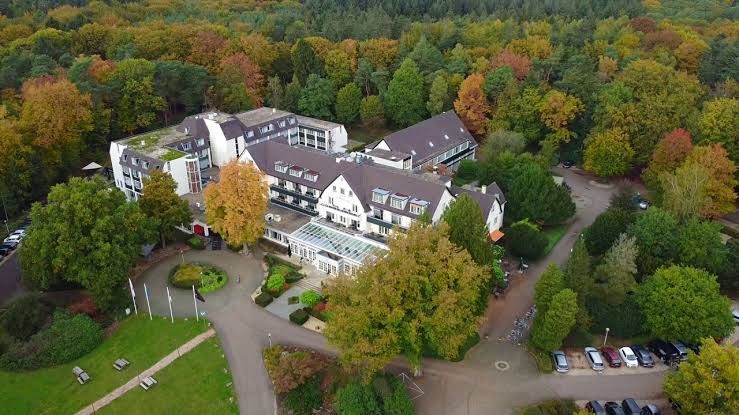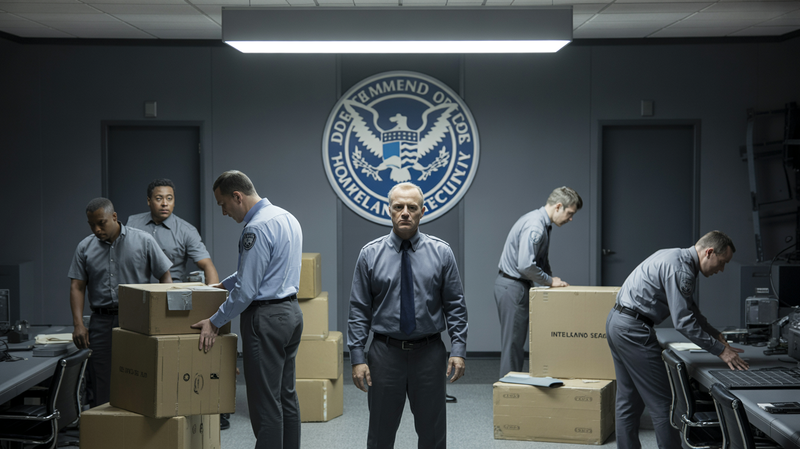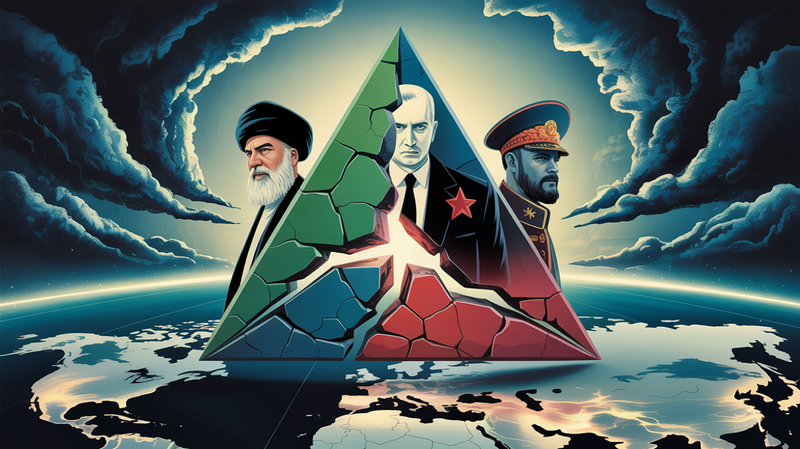Navigating the Realm of Secrecy: The Bilderberg Meetings and the Intricacies of Power"
Once upon a time, in a world of closed doors and confidential conversations, a private conference took place. The Bilderberg Meetings, a gathering shrouded in secrecy, brought together an eclectic group of powerful individuals from various fields. From politicians to industry leaders and media moguls to esteemed academics, these influencers

Once upon a time, in a world of closed doors and confidential conversations, a private conference took place. The Bilderberg Meetings, a gathering shrouded in secrecy, brought together an eclectic group of powerful individuals from various fields. From politicians to industry leaders and media moguls to esteemed academics, these influencers congregated with one purpose – to engage in open dialogue about global issues.
In 1954, amidst the tensions of the Cold War, the Bilderberg Group was born. Their mission was simple: to facilitate conversations between Europe and North America, away from the public eye. As time passed, the veil of secrecy around these meetings only grew thicker. The world wondered what transpired behind closed doors, as participants adhered to strict confidentiality rules. No minutes were taken, no reports were written, and no voting took place. The Bilderberg Group emphasized privacy, creating an environment where ideas could be exchanged freely and without judgment.
Despite their intentions, this veil of secrecy only fueled speculation and conspiracy theories. Rumors began to circulate that the Bilderberg Group was orchestrating global events and wielding power beyond comprehension. However, the reality might have been far less sensational.
In this intriguing story, we delve into the heart of the Bilderberg Meetings, unearthing the enigma that has captivated the public for decades. We explore the importance of fostering candid discussions and the intellectual freedom it can stimulate, ultimately influencing public policies and perceptions. Yet, we also recognize the challenges posed by the lack of transparency, as the public is left to speculate about what truly transpires behind the closed doors of the Bilderberg Meetings.
Join us on this fascinating journey, as we navigate the realm of secrecy, power, and influence. Along the way, we will examine the delicate balance between maintaining an open dialogue and the public's demand for transparency. In a world of mysteries and enigmas, one thing is certain – the Bilderberg Meetings will continue to inspire intrigue and curiosity for years to come.
As we delve deeper into the operations of the Bilderberg Meetings, it becomes evident that the selection of participants is a meticulously thought-out process. The administrative Steering Committee chooses individuals who possess expertise and occupy positions that can shape global discourse. Yet, the fact remains that this influential gathering could exert a disproportionate influence over world events. While such a notion isn't entirely baseless, in the absence of concrete evidence or transparent proceedings, such claims largely remain speculative.
The broad themes for these meetings are typically centered around key issues related to global politics, economics, and societal trends. Given the stature of the participants, it's conceivable that their discussions could influence policymaking and global economic trends. Critics argue that decisions affecting millions should not be made behind closed doors, away from public scrutiny and accountability. On the other hand, without solid evidence of such influence, these allegations also remain conjecture.
Defending their stand, the Bilderberg Group maintains that their objective is to foster candid discussions on significant issues, free from the constraints imposed by public office and corporate responsibilities. The idea is that this intellectual freedom may stimulate new insights and ideas that, indirectly, could influence public policies and perceptions.
As we navigate further through this captivating tale, we come face-to-face with the mystery and controversy that has always surrounded the Bilderberg Meetings. While the secrecy creates an atmosphere conducive to speculation and conspiracy theories, the reality might be less sensational. It is plausible that these gatherings serve as a platform for thought leaders to engage in open discussions on global issues, without necessarily plotting the course of world events.
The story of the Bilderberg Meetings is a testament to the complexities and contradictions of our world. On one hand, there's an inherent need for spaces where global leaders can engage in frank and open discussions. On the other hand, there's an equally strong public demand for transparency, especially when it comes to matters that could potentially impact millions of lives.
As we turn the final pages of this story, we realize that the Bilderberg Meetings, despite being shrouded in secrecy, might just be a reflection of our society’s struggle to strike a balance between privacy and transparency. They remain an enigma, not because of their supposed orchestration of world events, but because of the challenging questions they pose about privacy, power, and democracy.
The story continues, as the Bilderberg Meetings endure, both a platform for intellectual discourse and a source of endless speculation. Unveiling the true nature of this enigma remains a quest, one that keeps us intrigued and curious, just as the meetings themselves continue to stir the world's curiosity.
As our exploration continues, we delve into the intricacies of the "Chatham House Rule", a principle that governs the Bilderberg Meetings.
The rule, originating from the Royal Institute of International Affairs in London, emphasizes confidentiality. It allows participants to freely use information received, but prohibits revealing the identities or affiliations of speakers or any other participants. The purpose? To foster open, honest discussions by assuring participants that their comments won't be attributed to them publicly, thus, creating an environment conducive to uninhibited intellectual exchange.
However, this degree of secrecy is not without controversy. It inevitably clashes with a fundamental tenet of democratic societies - transparency. Citizens are increasingly demanding accountability from their leaders and organizations that wield significant influence. Therefore, the challenge becomes how to maintain open dialogue without compromising the public's right to information.
The Bilderberg Meetings highlight this dilemma vividly. How do you balance the need for private, unrecorded conversations among global leaders against the public's demand for transparency? Critics argue that those who possess the power to shape world events owe an explanation to the very people their decisions impact. However, proponents of the Chatham House Rule insist that it promotes frank and insightful discussions that might otherwise be hindered by public scrutiny.
Moreover, the participants of the Bilderberg Meetings, considered "high-profile individuals," are not only influential but also operate within spheres where their actions are constantly scrutinized. Their involvement with the Bilderberg Meetings further amplifies the public interest, leading to demands for greater transparency. Yet, the meetings' adherence to confidentiality fuels speculations, adding another layer to the complexity of the Bilderberg enigma.
Let's consider an instance where a high-profile individual from a small nation attends a Bilderberg Meeting. The subsequent silence from the individual might give rise to suspicion among their constituents. While the refusal to comment may simply reflect adherence to the Chatham House Rule, it can also foster a sense of disconnection and mistrust. The public's call for openness might not be satisfied by the generic topics of discussion that the Bilderberg Meetings usually release.
With this understanding, we uncover yet another layer of the Bilderberg mystery. The interplay of secrecy, power, and public accountability weaves a complex tapestry that continues to draw global attention. As our journey unfolds, we are left to ponder the paradox of the Bilderberg Meetings. They simultaneously embody a space for open dialogue among global leaders and a source of speculation and intrigue due to their confidential nature.
While the Bilderberg Meetings continue to stand as a beacon of intellectual exchange among global leaders, the quest for transparency persists. The meetings reflect the constant tug-of-war between the right to privacy and the need for public accountability. As our narrative unravels, we continue to question and explore, drawn in by the enigma that is the Bilderberg Meetings.
Yet, in the face of this seemingly impenetrable enigma, it’s essential to remember that the Bilderberg Meetings aren’t a monolithic institution. They are, instead, a collection of individuals, each with their own beliefs, ideologies, and objectives. Herein lies another layer of complexity in our understanding of the Bilderberg Meetings.
When these high-profile individuals gather, they bring with them not only their professional expertise and influence, but also their personal perspectives and biases. While the atmosphere of confidentiality might indeed foster open and insightful discussions, the potential for these conversations to impact global events is entirely dependent on the individuals involved and their subsequent actions.
It's also crucial to bear in mind the temporary nature of influence. High-profile individuals may rise or fall depending on the dynamics of their professional fields and public sentiment. A leader might wield considerable power and influence at one Bilderberg Meeting, only to lose their stature before the next gathering due to a change in office or public opinion. This transience adds yet another layer of uncertainty to any potential global influence that the Bilderberg Meetings may have.
Moreover, this focus on individuals highlights another important aspect – the subjectivity of perception. How the public perceives the Bilderberg Meetings and their possible influence is largely subjective. It can be swayed by personal beliefs, ideologies, and even prevailing societal attitudes. Therefore, the enigma that is the Bilderberg Meetings could be perceived as a shadowy group orchestrating world events or simply as a private forum for open dialogue among global leaders, depending on one’s viewpoint.
In this subjective context, the veil of secrecy that surrounds the Bilderberg Meetings could further fuel assumptions and speculations. The limited information available to the public, combined with the stature of the participants, makes it fertile ground for various interpretations and theories. This condition has contributed to the Meetings' enduring allure and intrigue.
As we further explore the Bilderberg Meetings, we realize that their impact cannot be definitively measured or universally agreed upon. Instead, they remain a complex constellation of influential individuals, subjective perceptions, and societal dynamics. While their enigma continues to captivate, it also serves as a mirror, reflecting broader questions about power, transparency, and the nature of influence in our global society. Thus, our exploration of the Bilderberg Meetings is not just about unraveling an enigma but also about probing deeper into these fundamental societal themes.




